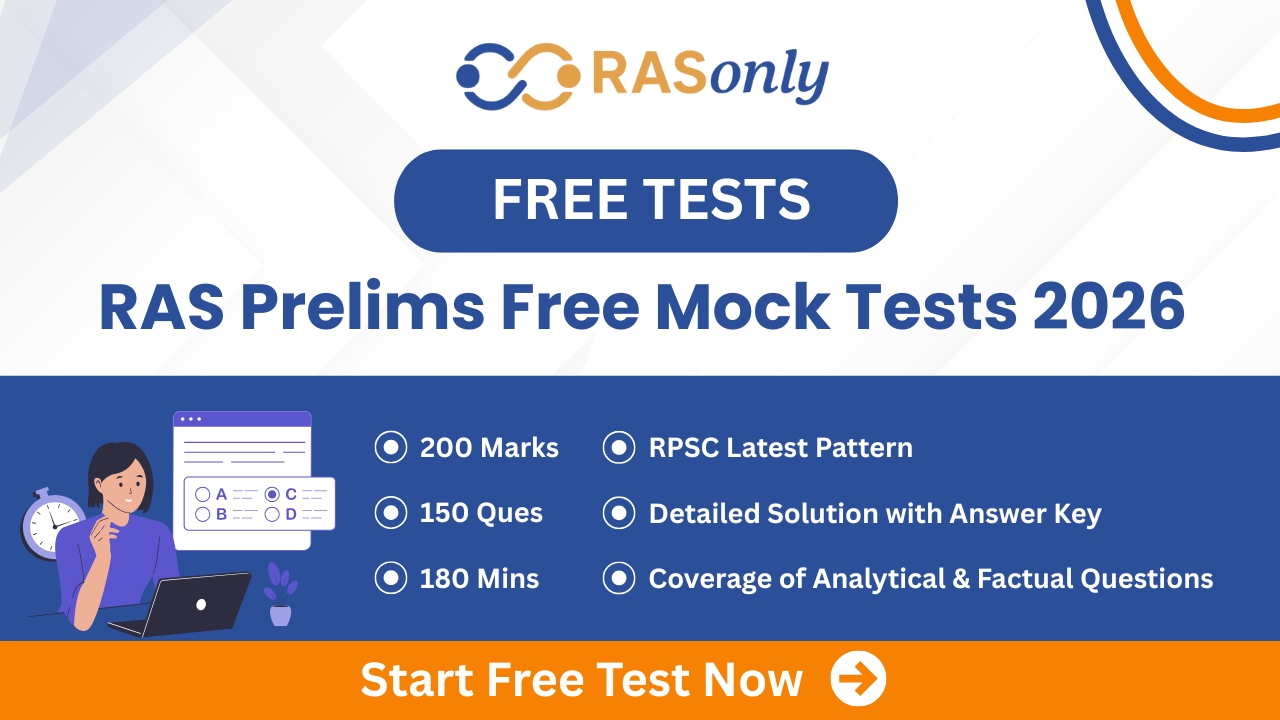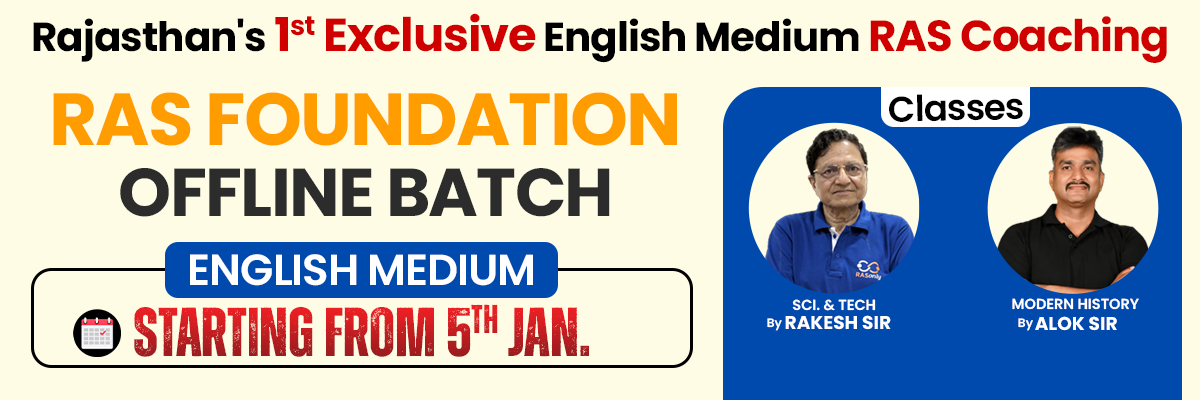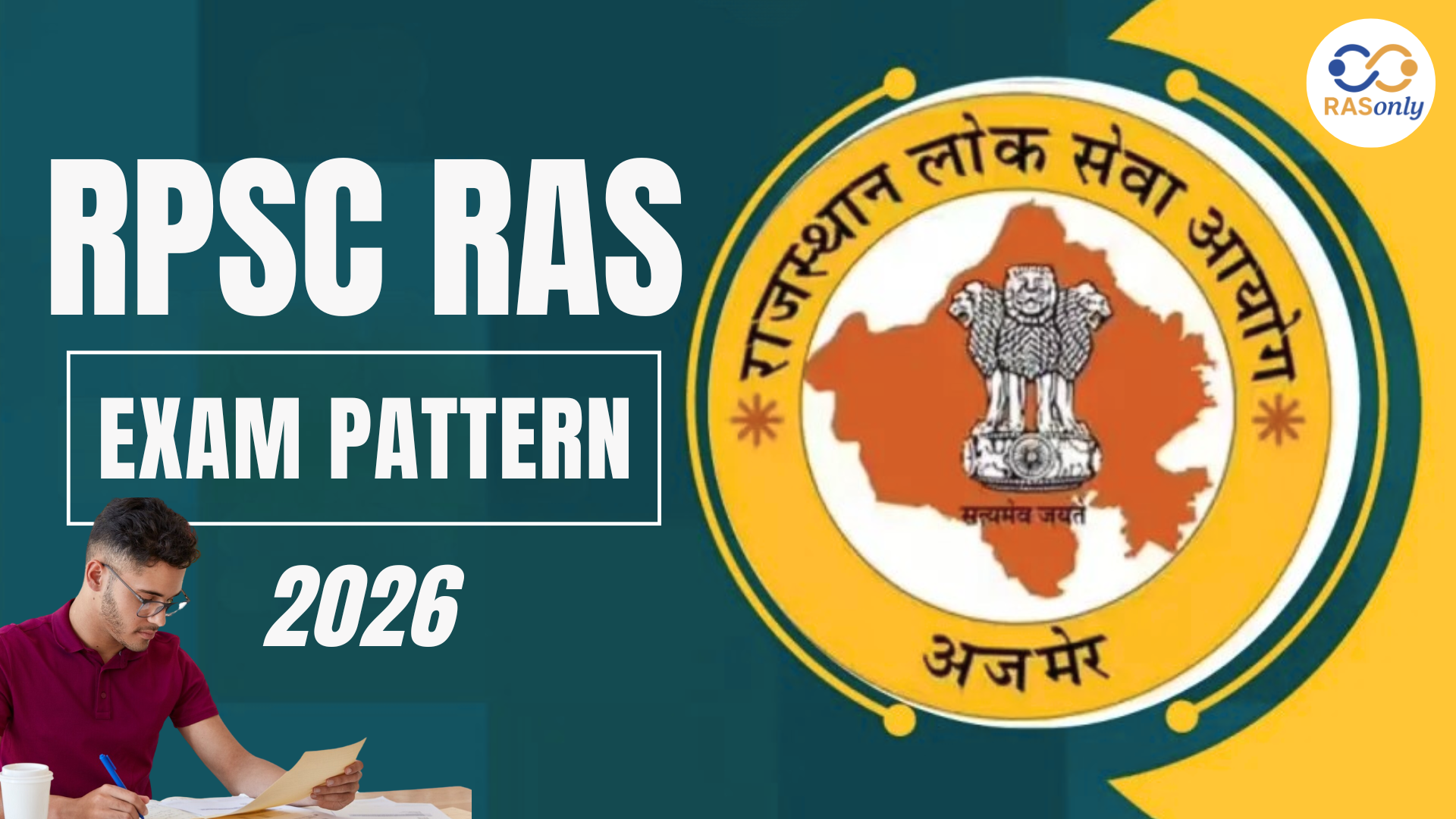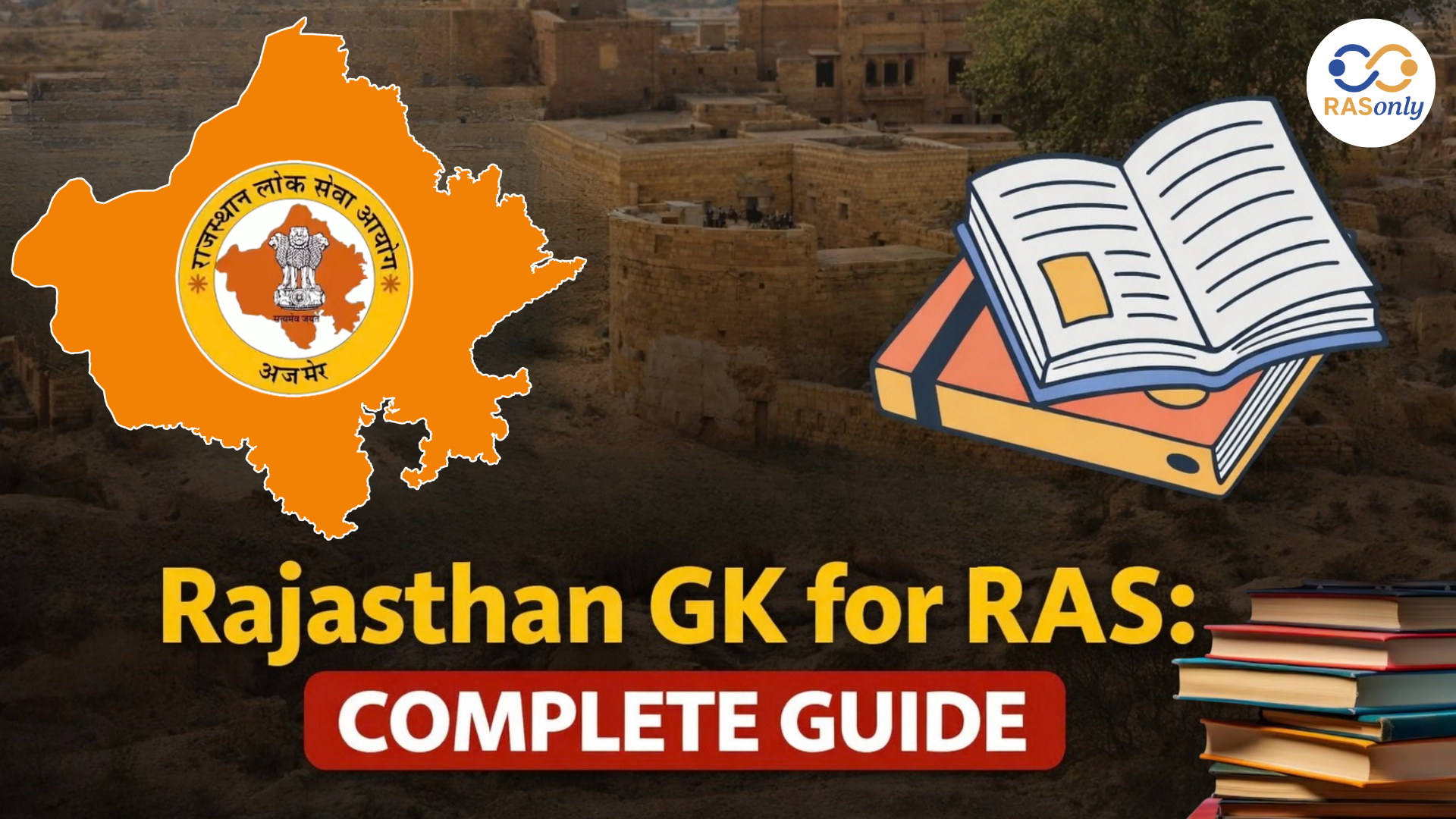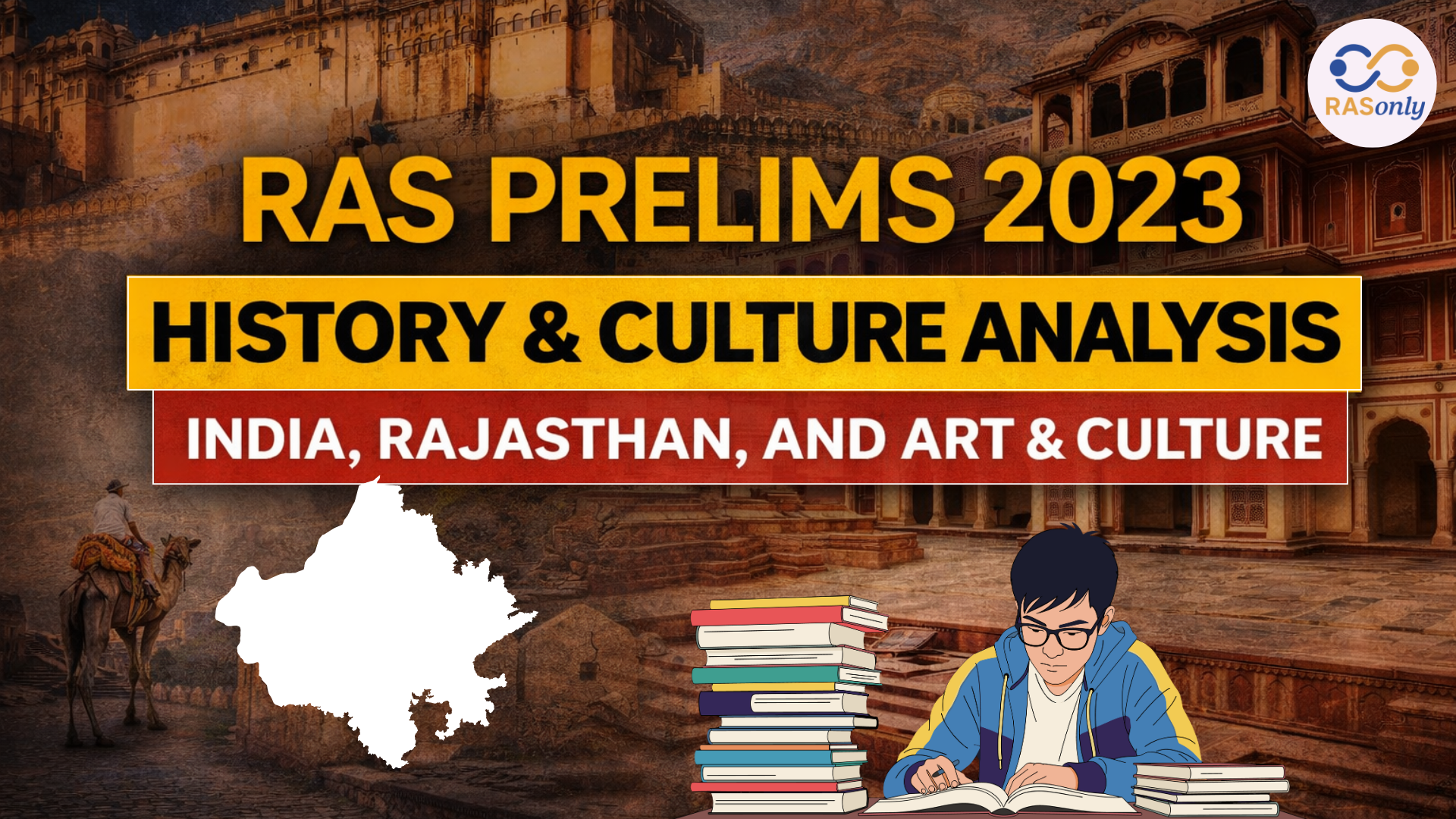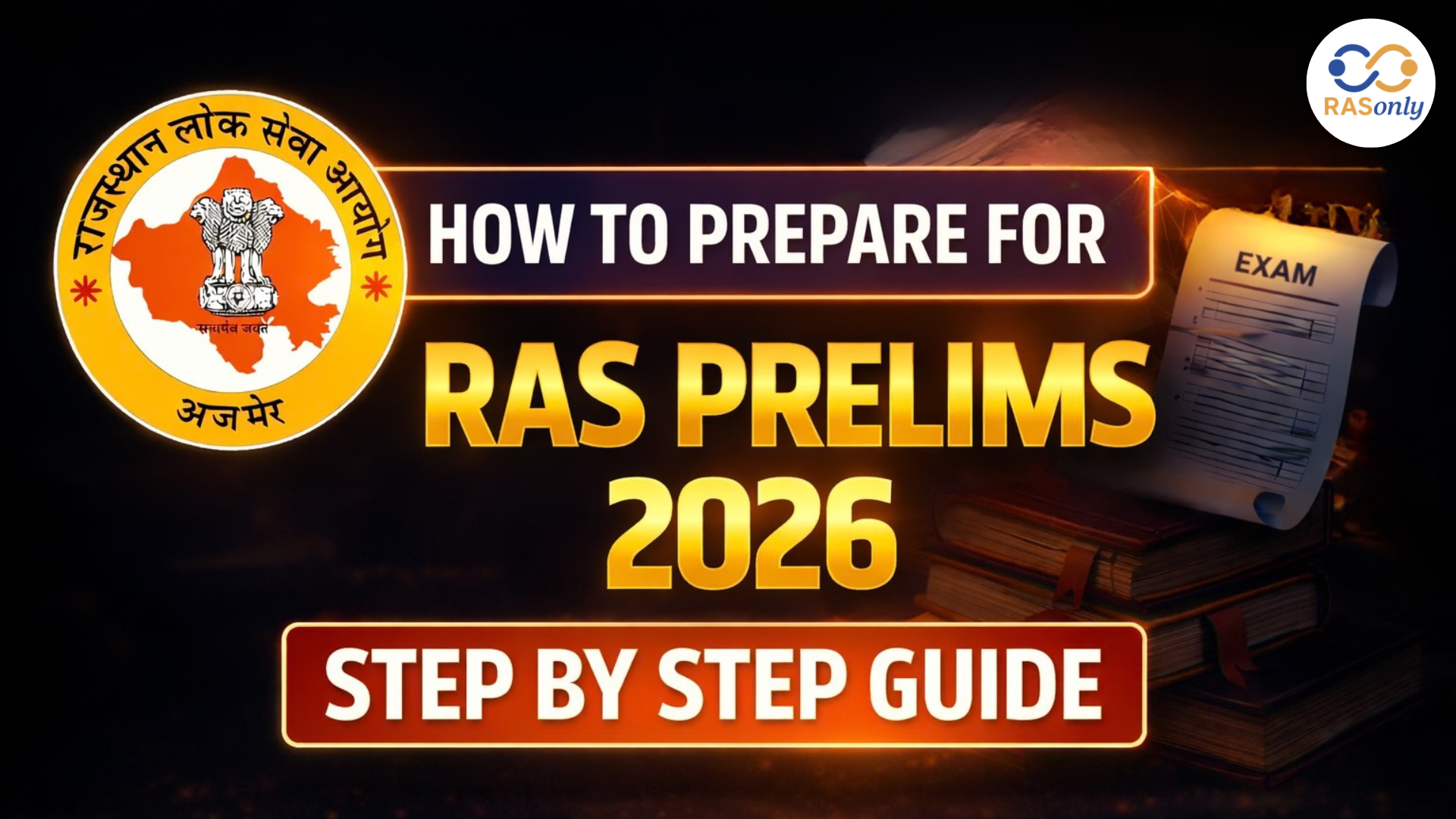RPSC RAS 2026 Subject Wise Exam Pattern for Prelims, Mains & Interview Details
- >
- RAS Preparation Resources
- >
- Radioactivity and its application
Radioactivity and its application

Get in Touch with RASonly!

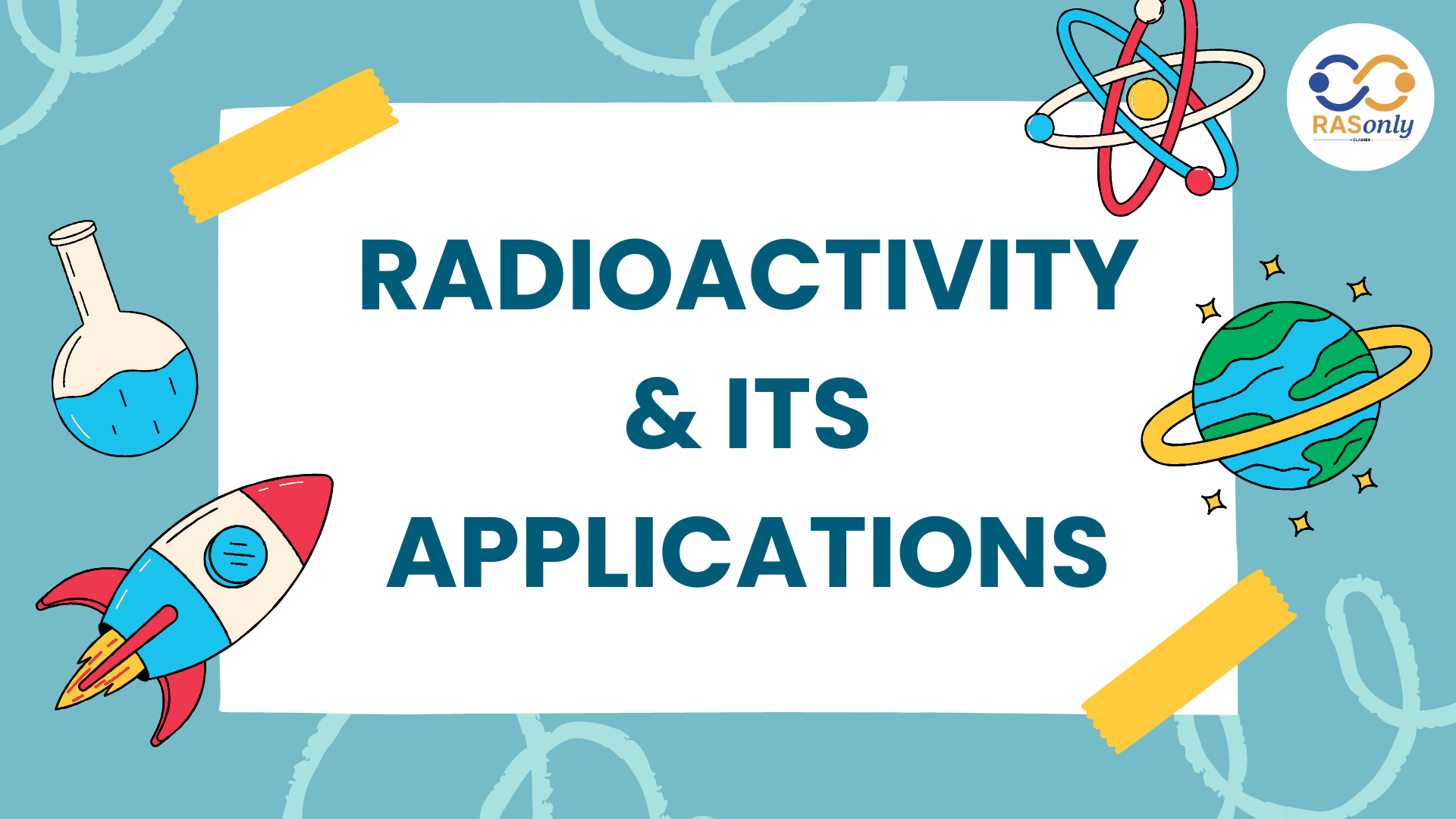
Radioactivity is the spontaneous disintegration of particles or radiations of unstable atomic nuclei employed in different areas. Radioisotopes are used in medicine in the diagnosis and treatment of diseases such as cancer and thyroid diseases. Radioactive materials are industrially utilized in the genesis of power, quality measurements, and preservation of food. Radiometric dating and carbon dating are archaeological and geological methods of establishing the age of a rock and of fossils. Radioactivity is also very important in environmental monitoring, biological applications and radiochemistry.
Key Points for RAS Mains
What is Radioactivity?
- Radioactivity is defined as a spontaneous release of ionizing particles or radiation by unstable atomic nuclei.
- When the nuclei of atoms are unstable they give out energy in the form of particles (alpha, beta) or electromagnetic rays (gamma) and continue to a more stable position. It is referred to as nuclear decay.
- Radioactivity is natural and it may be artificial. It has become very essential in most disciplines that include medicine, industry, archaeology, and environmental study.
Radioactivity Applications
Medical Applications
- Radioisotopes are extensively used in diagnostic and treatment of many systematic disease conditions. This has resulted in another field referred to as nuclear medicine.
- Iodine-131: This is used in the measurement of cardiac output, plasma volume, fat metabolism as well as thyroid activity.
- Phosphorus-32: It assists in monitoring the malignant tumors since the cancerous cells can internalize phosphates more quickly.
- Technetium-99m: This is widely applied in the imaging and scanning of the internal organs.
- Cobalt-60 and Cesium-137: used as a source of radiotherapy in the treatment of cancerous tumors.
Industrial Applications
- Power production: Breaking of uranium atoms (fission) in the nuclear reactor generates a lot of energy.
- Material Inspection:It measures thickness and density of metal and plastic sheets.
- Food Preservation: Radioactive rays are also applied in killing the microorganisms present in food to prevent corruption.
- Polymer and Plant Mutation: Causes grafting in polymers and generates a disease resistant variety of plants.
- Lubricant Testing: Radioactive tracers are used to test motor lubricants and other components that are used.
The Geology and the Archaeology:
- Radiometric and Carbon dating Ancient materials and fossils:
- Radiometric Dating: it is used to estimate the age of rock formations and rocks.
- Carbon 14 Dating: Is particularly applicable in the dating of organic materials that are anything between 500 and 50,000 years old in the field of archaeology.
Environmental Studies
- Water and Air Pollution: Using radioisotopic tracers allows one to trace the pollutants in the water bodies and air.
- Oceanography: Track sea-bottom ocean currents as well as snow and water content.
Biological Research
- Radioactive tracers assist in bio-chemical pathways, metabolism and nutrient uptake in animals and plant life. For example:
- By studying the photosynthesis reaction using an oxygen isotope O-18, it has been found that the released oxygen is an oxygen of water and not carbon dioxide.
Radiochemistry
- Radiochemistry is the study of chemical reactions of radioactive materials.
- Radiotracers: Aid in the investigation of the reaction mechanisms.
- Medical usage: Synthesizes radiopharmaceuticals to use on diagnostic imaging.
- Environmental Monitoring: Assists in trailing the pollutants and radioactive contamination.
Conclusion for RPSC
The natural phenomenon of radioactivity has found its application in every field as a partner that cannot be done without. The narrow range of radioactivity application in medical care in the form of life-saving medical diagnostics to discovering the secrets of the ancient civilizations, and controlling the modern environmental issues contributes to the benefit of both science and societ
Post Category
- RAS Salary
- Result
- RAS Admit Card
- RAS Job
- RAS Cutoff
- Preparation Tips
- RAS Answer Key
- RAS Exam Analysis
- RAS Syllabus
- RAS Previous Year Papers
- RPSC RAS Exam Pattern
- RAS Interview
- RAS Mains Exam Date
- RAS Vacancy
- RAS Test Series
- RAS Best Books
- RAS Preparation Resources
- RAS Coaching Centre
- History
- Polity
- Geography
- Economics
- Science
- Art and Culture
- RPSC RAS Application Form
- RPSC RAS Notification
RASonly Interview Guidance Program

Mr. Ashok Jain
Ex-Chief Secretary Govt of Rajasthan
- IAS officer of the 1981 batch, Rajasthan cadre.
- Passionate about mentoring the next generation of RAS officers with real-world insights.
- Got retired in Dec 2017 from the post of Chief Secretary of the state of Rajasthan.

Mr. Guru Charan Rai
Ex-ASP / SP in Jaisalmer
- Guru Charan Rai, IPS (Retd), retired as Inspector General of Police (Security), Rajasthan, Jaipur in 2017.
- Served as ASP and SP in Jaisalmer, Nagaur, Sri Ganganagar, Sawai Madhopur, Dausa, Sikar, and Karauli.
- He also held key positions as DIGP and IGP in the Law and Order division.

Mr. Rakesh Verma
Ex-IAS Officer, B.Tech, MBA, and M.A. (Economics)
- IAS officer of the 1981 batch and retired in Chief Secretary Rank.
- Civil servant of high repute and vast experience.
- Has been teaching UPSC CSE subjects for the last six years.
Related Post
Daily Current Affairs for RAS Exam Preparation 2026
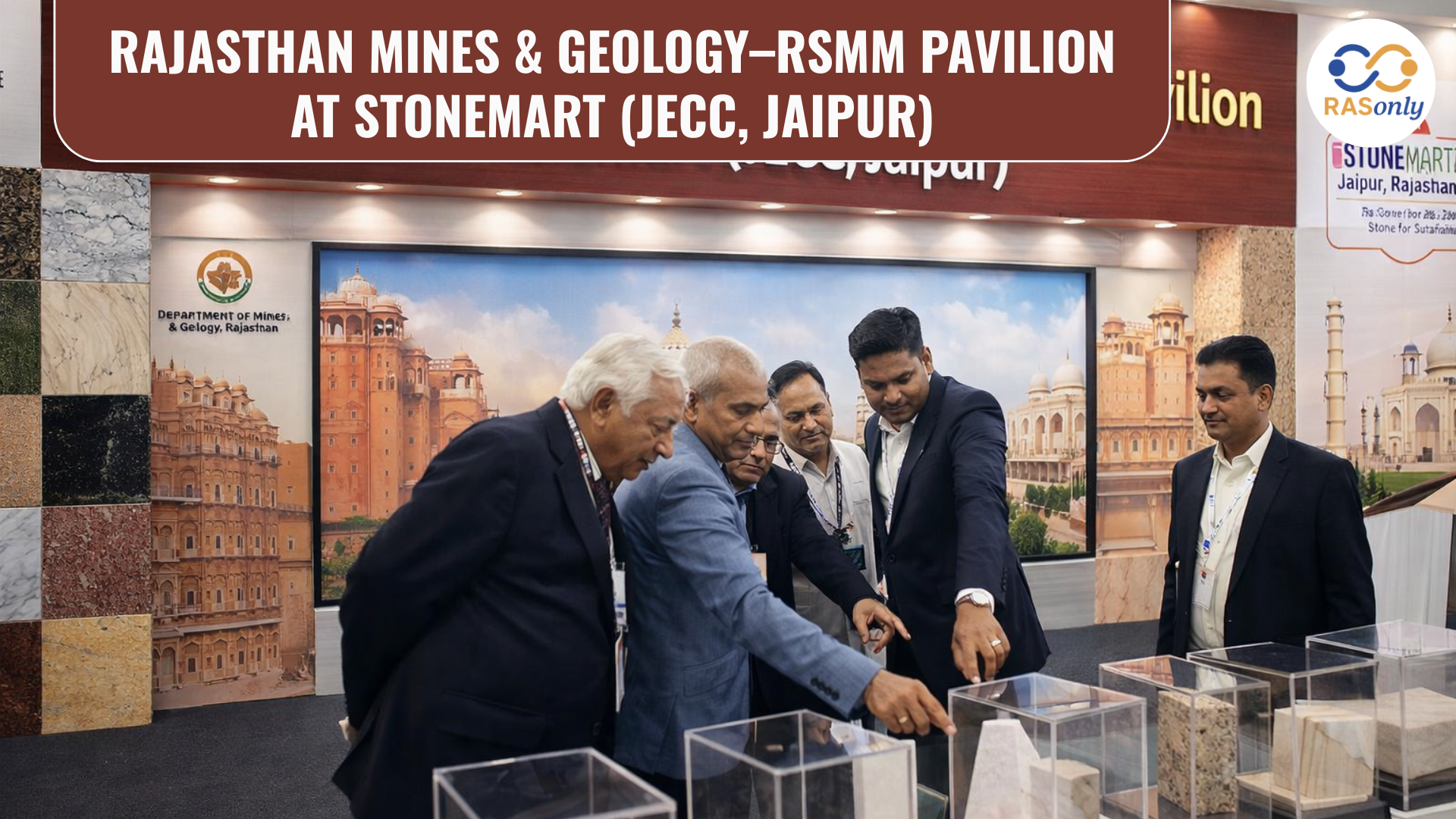
Rajasthan Pavilion Shines at Stone Mart Jaipur 2026
February 07, 2026
Rajasthan Achieves 3,000 MW Under PM-KUSUM Scheme
February 07, 2026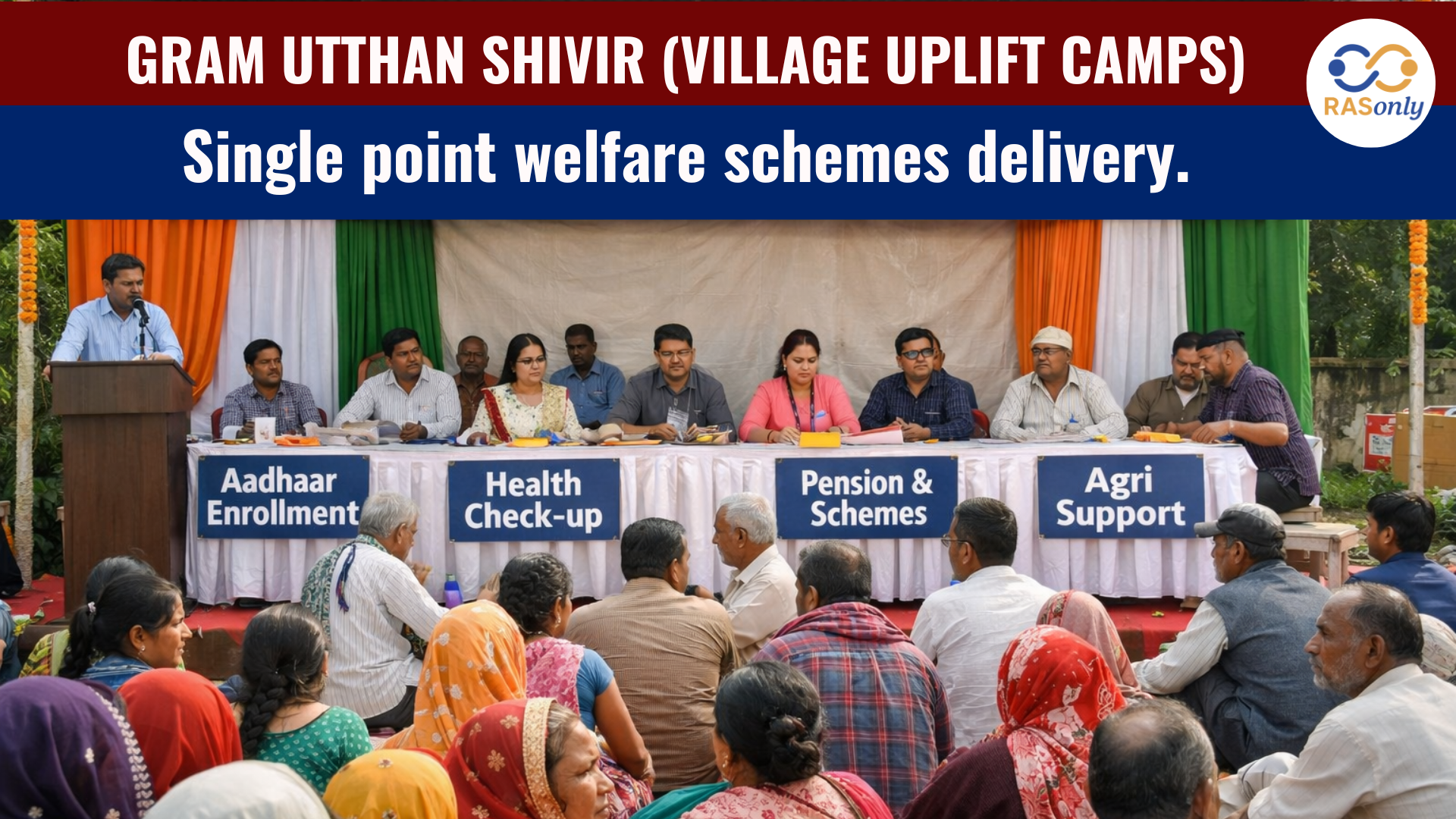
Gram Utthan Shivirs Strengthen Rural Governance in Rajasthan
February 07, 2026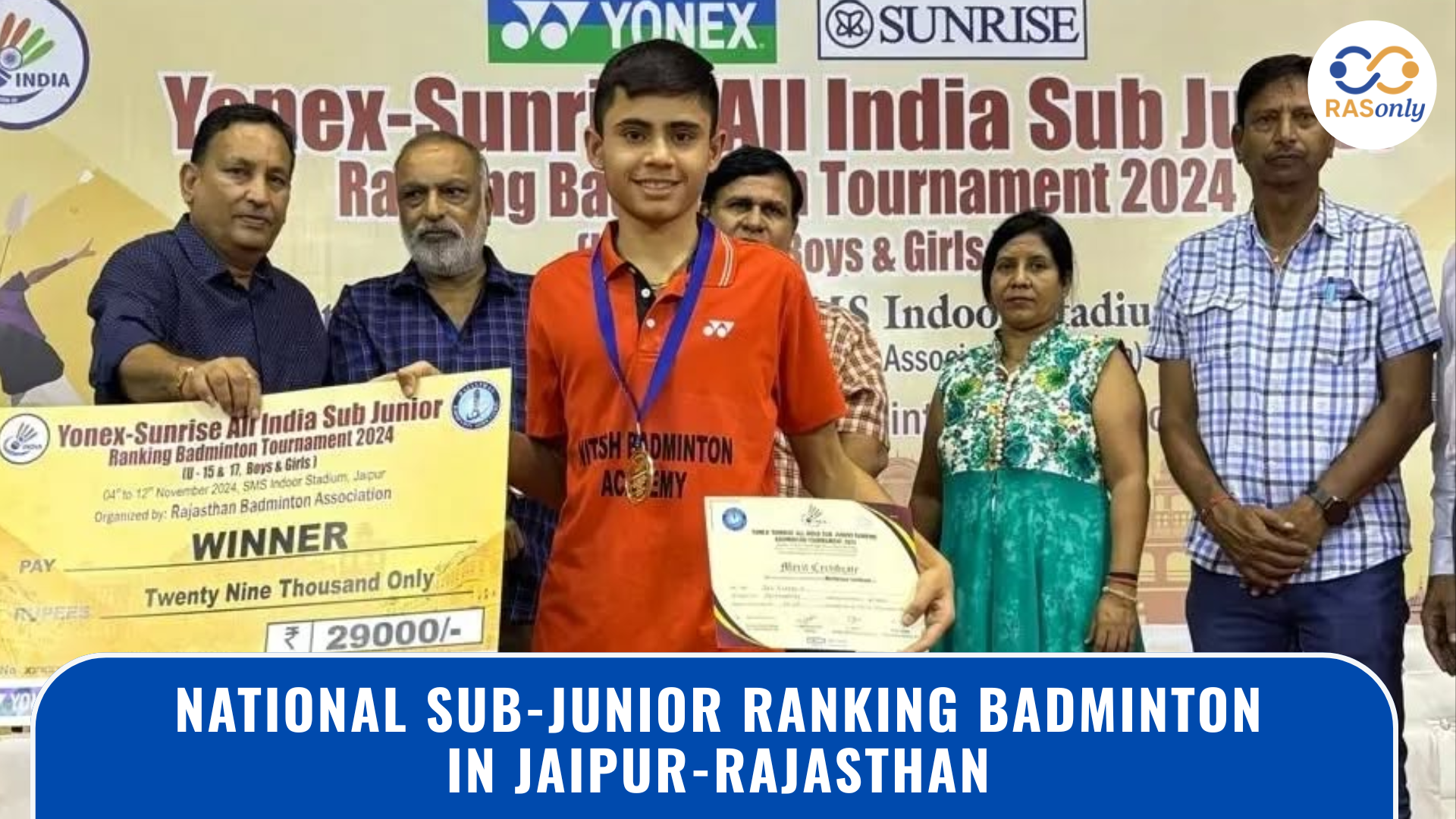
Jaipur Badminton: 72-Minute U-15 Final Creates Record
February 06, 2026👉🏻 Register Today to Join Classes! 👍🏻
- Team RASOnly -
🎯 Benefits of RASOnly Coaching:
- ✅ 1:1 Mentorship with RAS Officers
- ✅ Experienced and Expert Faculty
- ✅ Free Library Access
- ✅ Daily Minimum 4 Hours Must
- ✅ Comprehensive Study Material
- ✅ Regular Tests & Performance Analysis
- ✅ Personalized Guidance & Doubt Solving
- ✅ Online & Offline Class Options
- ✅ Affordable Fees with Quality Education
Key Highlights:
- 👉🏻 3-Day Refund Policy
- 👉🏻 New Batch Starting from 04 August
- 👉🏻 Registration Amount: Only ₹1000

